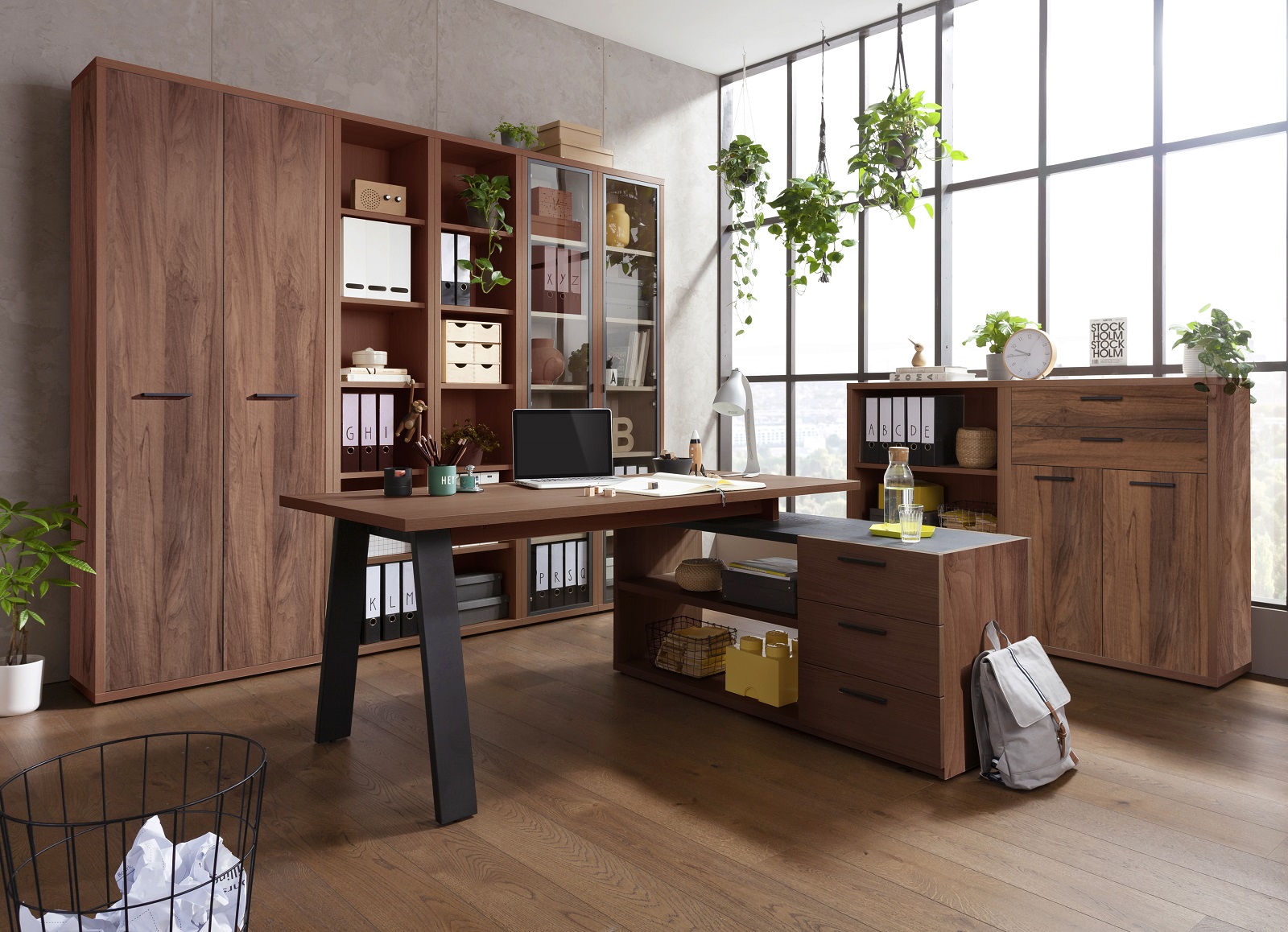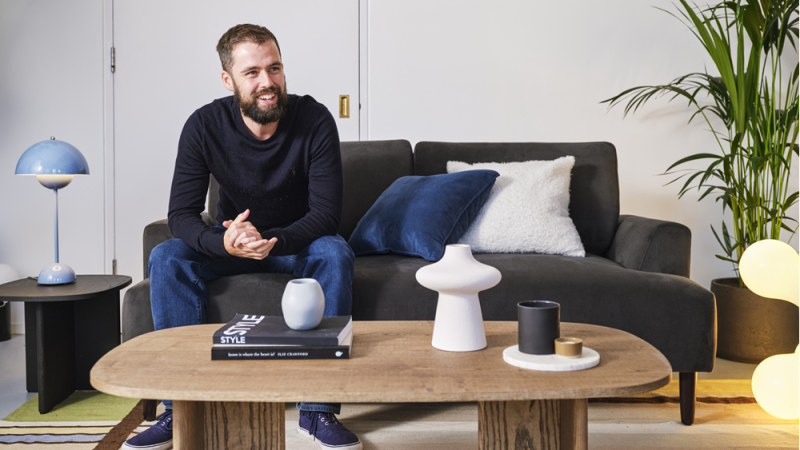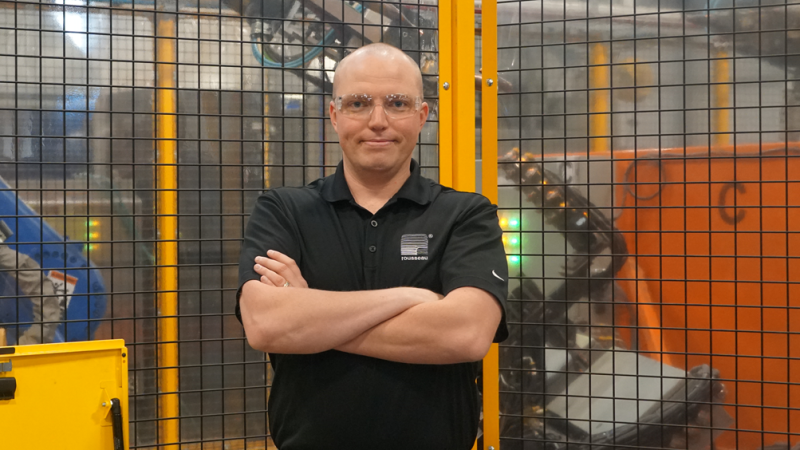Italy-based Saviola, one of the leading post-consumption wood processors on a global scale, stands out for a variety of reasons. Famous for its ecological particleboards made of 100% post-consumption wood, the company is also unique in terms of its vertically integrated operations model concentrated within a single site in Lombardy, with a limited ecological footprint.
The group’s 1,400 staff work within four divisions: Gruppo Mauro Saviola – a manufacturer of ecological panels, Sadepan Chimica – an R&D specialist in the chemicals field, Saviolife – a manufacturer of slow-release fertilizer and more, and Composad, a ready-to-assemble (RTA) furniture manufacturer, the last member of the value chain.
Living the founder’s vision
This year, the company celebrates its 60th anniversary. Founded by Mauro Saviola in 1963, the concept of recycling became ingrained in the company’s DNA from the very beginning. Mr Saviola, a true visionary, was well ahead of his times, focusing on the salvaging and re-use of waste to give it a second life in the form of particle boards. He gradually expanded the business to grow it into the vertically integrated Saviola Group of today.
“The founder started the company in 1963 with the idea of recycling in mind – at a time when the concept of sustainability and recycling was unknown, or rather, associated with the poor, or with a shortage of money,” says Composad CEO Nicola Negri. “But he was consistent and pursued this vision; it may sound simple, but to invent a method that purifies post-consumption wood such as pallets, fruit crates, cable reels and similar products coming from the ‘urban forest’ and make it suitable for alternative use is not easy.”
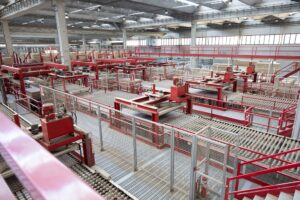
This continued investment in research and development has led to the invention of the LEB (Lowest Emission Board) Ecological Panel – a panel with the lowest formaldehyde (used as glue) emissions in the world, well below the parameters set by the strictest regulations.
Apart from two other Italian competitors, no other company in the world is capable of achieving 100% post-consumption wood at this level.
A strategy of acquisitions, synergies and expansion of the product portfolio has over time led Saviola to consolidate its vertical and horizontal integration model, unique to the market.
Today, consisting of 20 companies spread throughout Italy and with plants in Argentina, Belgium and Germany, Saviola remains true to its founder’s dream: recover and recycle raw material that can be revived and reused, within an economically and ecologically sustainable process.
Restructured to thrive
Mr Negri, an experienced manager and leader with an international education and background, joined the company in 2015 to use his wide-ranging experience to take the company to new heights, first as a senior managing director of Saviola Holding and later as CEO of Saviola’s Furniture business unit – Composad.
An engineering graduate from Milan University, he later obtained a Master’s degree from Stanford University and has worked in leadership positions for major multi-national groups such as Pirelli, Saint Gobain and Wavin.
In addition to his work in business, he is also a professor at Cattolica University in Milan, teaching strategy and politics within Master’s courses.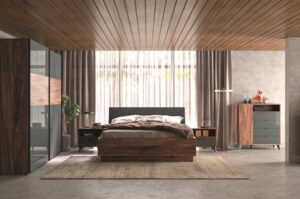
“I joined the board of Saviola Holding in January 2015, during which we started an organisational change in order to establish best practices and procedures typically used in multinational companies.”
“Saviola’s core business is the production of 100% post-consumption particle board made from used wood such as pallets. Within the group’s Composad business unit these are then used to make furniture.
We are engaged not just in recycling but in upcycling, creating much higher value than the original product for which trees were cut,” he says, pointing out that Saviola’s annual production is some 1.3 million cubic metres of post-consumption wood, which saves 10,000 trees every single day. An impressive feat.
The company has several collection centres in Italy, France and Switzerland, where the used wood is sorted to eliminate any contamination, and then re-sized, ready to be transported to Saviola’s production facilities. The particle boards are sold on a global scale and a part is used by Composad, making Saviola one of a kind in terms of this vertical process integration.
“To have four very different business lines – glue, particle board, fertilizer and furniture production – concentrated in a single location is unique, there is no other company in the world with the full process covered within a single site. This setup results not only in increased efficiency but, importantly, also in a significantly reduced environmental impact.”
Green as it can be
Composad today is one of the top Italian manufacturers of RTA furniture, with a mission to export the doubly eco-sustainable example of “100% Designed and Made in Italy” to global markets.
The furniture fully matches today’s demand for green products, accentuated by the population’s increasing awareness of the need to mitigate climate change and the growing trend towards a circular economy. With its fully green credentials, it is set to generate increasing interest in international markets.
The company is a holder of the prestigious FSC® (Forest Stewardship Council®) certification, which confirms the company’s commitment to responsible management of the entire production process. The quality of its products has been duly recognised: in 2020, Composad won (for the second consecutive year) the FSC Italia Furniture Award 2020 as the best sustainable solution for home-office furniture and in 2021 Composad won the first edition of the FSC International Furniture Award.
“Today, 90% of Composad’s output is shipped to furniture dealers in Europe, the Middle East and the Far East, says Mr Negri, affirming that this year’s focus will be the US and Great Britain, both large markets with significant potential.
“We hope that demand for Composad’s product range will increase as it meets all the requirements for a fully sustainable eco-product. Our dealers and distributors should highlight these aspects with passion, and push the range intensively. The public, especially the younger generation, will want to hear about this fantastic product that is completely green, a striking example of the circular economy at its best.”
